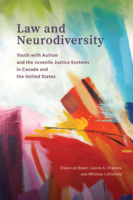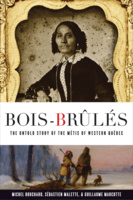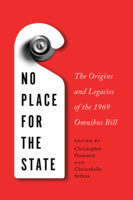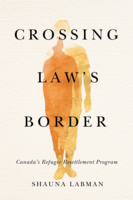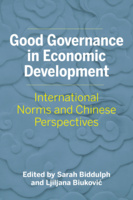A Better Justice?
Community Programs for Criminalized Women
Do community programs offer an effective alternative to imprisonment for women within the criminal justice system? A Better Justice? sets out the case.
The Justice Crisis
The Cost and Value of Accessing Law
Based on innovative recent empirical research, The Justice Crisis assesses what is and isn’t working in efforts to improve access to civil and family justice in Canada.
The Tenth Justice
Judicial Appointments, Marc Nadon, and the Supreme Court Act Reference
The Tenth Justice tells the complete story of one of the strangest sagas in Canadian legal history: the ill-fated appointment to the Supreme Court of Canada of Justice Marc Nadon.
Law and Neurodiversity
Youth with Autism and the Juvenile Justice Systems in Canada and the United States
Through a comparison of juvenile justice systems in Canada and the United States, Law and Neurodiversity examines gaps of accommodation and consideration for youth with autism.
Inalienable Properties
The Political Economy of Indigenous Land Reform
Inalienable Properties explores the contrasting approaches taken by local leaders to property rights and development in four Indigenous communities.
From Wardship to Rights
The Guerin Case and Aboriginal Law
This thoughtful and engaging examination of the Guerin case shows how it changed the relationship between governments and Indigenous peoples from one of wardship to one based on legal rights.
Bois-Brûlés
The Untold Story of the Métis of Western Québec
Bois-Brûlés shatters the prevailing orthodoxy that Métis communities are found solely in western Canada by demonstrating that a distinct community emerged in the fur trade frontier of Quebec in the early nineteenth century and persists to this day.
No Place for the State
The Origins and Legacies of the 1969 Omnibus Bill
No Place for the State is an incisive study that offers complex and often contrasting perspectives on the Trudeau government’s 1969 Omnibus Bill and its impact on sexual and moral politics in Canada.
Faith or Fraud
Fortune-Telling, Spirituality, and the Law
Faith or Fraud: Fortune-Telling, Individual Spirituality, and the Law answers an emerging controversy: Should the law’s understanding of religion include the “spiritual but not religious”?
Refugee Law after 9/11
Sanctuary and Security in Canada and the United States
The first major study to compare changes made to Canadian and US refugee law after and because of 9/11, Refugee Law after 9/11 uncovers crucial connections among refugee law, security relativism, and national self-image.
Trustees at Work
Financial Pressures, Emotional Labour, and Canadian Bankruptcy Law
Trustees at Work explores what is means to be considered a deserving debtor in under contemporary Canadian personal bankruptcy law.
Privacy in Peril
Hunter v Southam and the Drift from Reasonable Search Protections
This book, the second in the Landmark Cases in Canadian Law series, argues that in subsequent, post-Hunter v Southam decisions, the Supreme Court of Canada has strayed from the principles set out in that case, which were intended to protect the privacy of citizens from encroaching state power.
Governing the Social in Neoliberal Times
This accessible but theoretically sophisticated volume reveals how neoliberalism – as both an economic project and a broader political approach – has come to govern our daily lives, our understanding of the world we live in, and even how we think about ourselves.
Crossing Law’s Border
Canada’s Refugee Resettlement Program
Crossing Law’s Border offers a comprehensive account of Canada’s refugee resettlement program, from the Indochinese crisis of the 1970s to the current era of controversy and flux in refugee and asylum policy.
Good Governance in Economic Development
International Norms and Chinese Perspectives
Good Governance in Economic Development examines what happens at the intersection of international and Chinese conceptions of transparency, accountability, and public participation.




